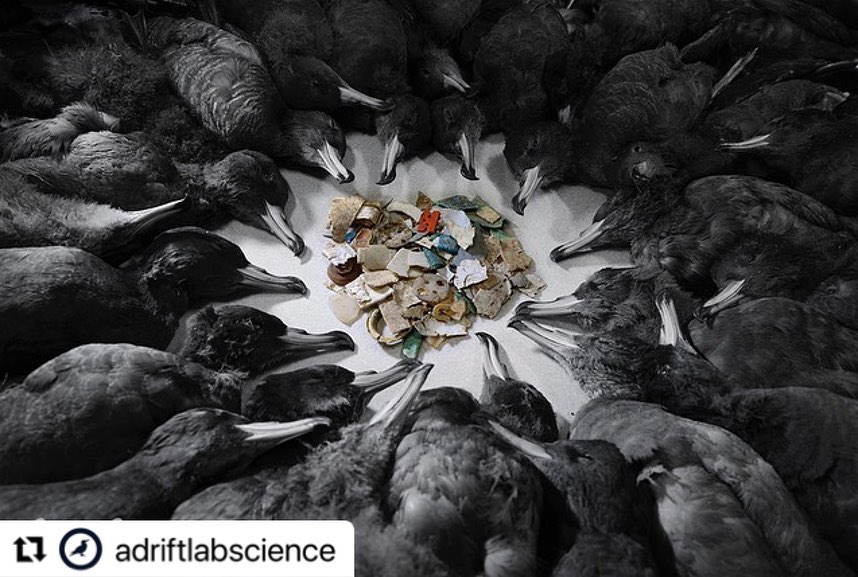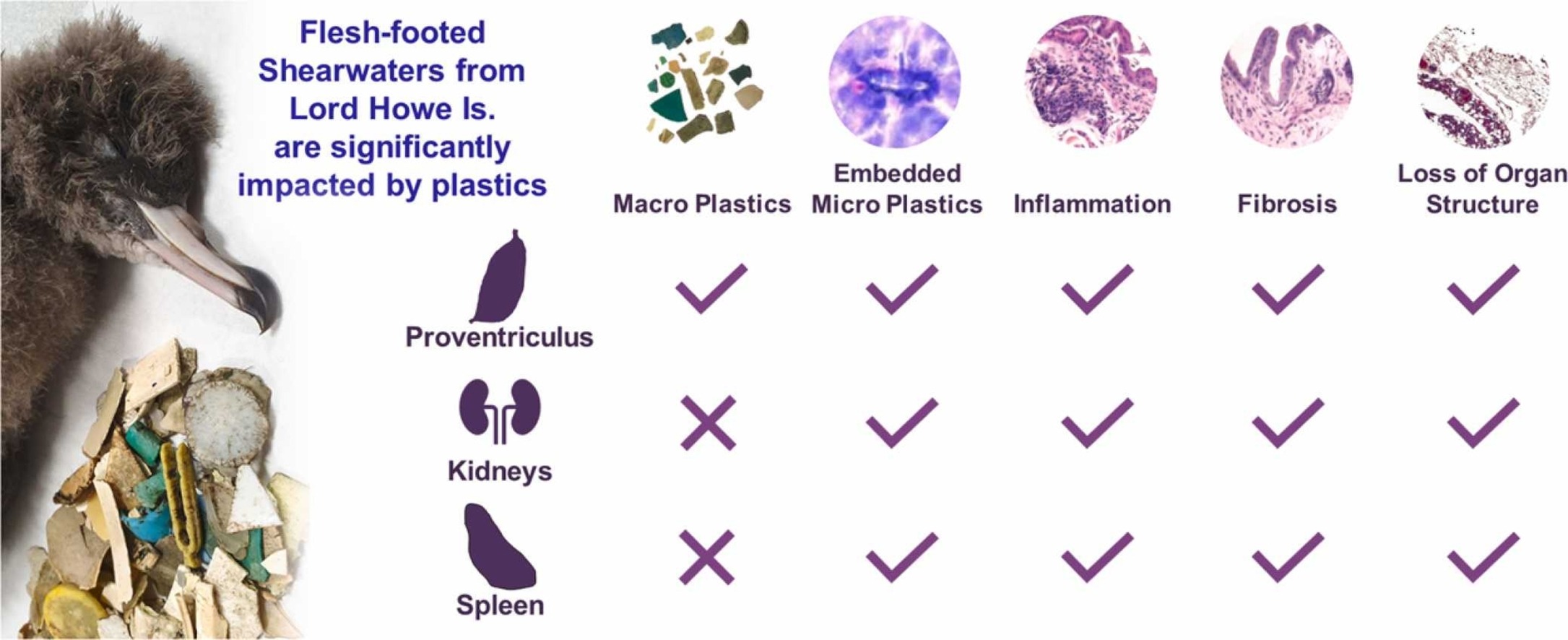
Flesh-footed Shearwaters and ingested plastic; photograph from the Adrift Lab
A study of the globally Near Threatened Flesh-footed Shearwater Ardenna carneipes on Australia’s Lord Howe Island published open access in the Journal of Hazardous Materials by Jack Rivers-Auty (Tasmanian School of Medicine, University of Tasmania, Hobart, Australia) has concluded that microplastic particles cause considerable tissue damage.
The paper’s abstract follows:
“Plastic pollution in the world’s oceans is ubiquitous and increasing. The environment is inundated with microplastics (< 1 mm), and the health effects of these less conspicuous pollutants is poorly known. In addition, there is now evidence that macroplastics can release microplastics in the form of shedding or digestive fragmentation, meaning there is potential for macroplastic exposure to induce direct and indirect pathology through microplastics. Therefore, there is an urgent need for data from wild populations on the relationship between macro- and microplastic exposure and the potential compounding pathological effects of these forms of plastics. We investigated the presence and impact of microplastics in multiple tissues from Flesh-footed Shearwaters Ardenna carneipes, a species that ingests considerable quantities of plastics, and used histopathological techniques to measure physiological responses and inflammation from the plastics. All organs examined (kidney, spleen, proventriculus) had embedded microplastic particles and this correlated with macroplastic exposure. Considerable tissue damage was recorded, including a significant reduction in tubular glands and rugae in the proventriculus, and evidence of inflammation, fibrosis, and loss of organ structures in the kidney and spleen. This indicates macroplastics can induce damage directly at the site of exposure, while microplastics can be mobilised throughout the body causing widespread pathology. Collectively, these results indicate the scope and severity of the health impacts of plastic pollution may be grossly underestimated.”

Read more by the Adrift Lab about the publication here, as well as here.
ACAP has chosen the theme of “Plastic Pollution” for next year’s World Albatross Day on 19 June.
Reference:
Rivers-Auty, J., Bond, A.L., Grant, M.L. & Lavers, J.L. 2022. The one-two punch of plastic exposure: macro- and micro-plastics induce multi-organ damage in seabirds. Journal of Hazardous Materials. doi.org/10.1016/j.jhazmat.2022.130117.
John Cooper, ACAP News Correspondent, 18 October 2022

 Français
Français  English
English  Español
Español